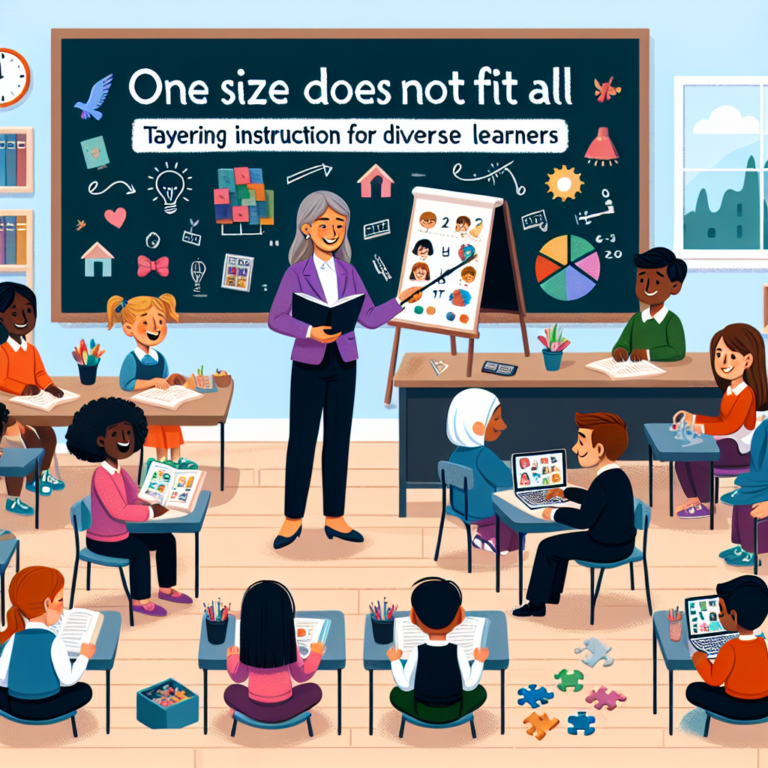
The Ultimate Guide to The Long-Term Effects of Parenting Styles: Guiding Children Towards Positive Outcomes
Introduction
Imagine a world where every child blossoms into a confident, compassionate, and successful adult. The journey to such a future starts in the early years, shaped significantly by parenting styles. Research shows that the long-term effects of parenting styles are not just fleeting; they lay the very foundation for a child’s emotional, social, and academic outcomes. Understanding this imperative relationship can empower parents, guardians, and educators to guide children towards positive outcomes. In this article, we will delve deep into the long-term effects of parenting styles, offering unique insights, case studies, and actionable strategies to cultivate an environment where children can thrive.
Understanding Parenting Styles
Parenting styles broadly categorize the approaches parents take in raising their children. Psychologist Diana Baumrind identified four primary styles:
- Authoritative
- Authoritarian
- Permissive
- Neglectful
This section will examine each style’s characteristics and their implications, supporting our inquiry into the long-term effects of parenting styles.
Authoritative Parenting
Characteristics:
- Balanced approach of responsiveness and demandingness.
- Encourages independence while setting clear boundaries.
Long-Term Outcomes:
Children raised with authoritative parenting styles generally develop high self-esteem, better social skills, and higher academic performance. Studies show that these children are more adaptive and able to cope with stress.
Authoritarian Parenting
Characteristics:
- High expectations with low feedback.
- Emphasis on discipline and obedience.
Long-Term Outcomes:
Children may grow up to be obedient but may struggle with self-esteem and social skills. Research reveals that authoritarian individuals often experience higher levels of anxiety and depression.
Permissive Parenting
Characteristics:
- Highly responsive but lenient.
- Few demands and little discipline.
Long-Term Outcomes:
While children tend to be more creative and expressive, they may struggle with impulse control and authority, often leading to difficulties in school and relationships.
Neglectful Parenting
Characteristics:
- Low responsiveness and low demands.
- Parents are often uninvolved in their children’s lives.
Long-Term Outcomes:
Children may develop attachment issues, poor self-esteem, and difficulties in academic settings. Studies reveal that neglectful parenting correlates strongly with a range of future behavioral problems.
Case Studies: The Long-Term Effects of Parenting Styles
Real-world applications of parenting styles provide invaluable insight into their long-term effects. Here are some case studies illustrating these outcomes:
Case Study 1: The Smiths and Authoritative Parenting
The Smiths practiced authoritative parenting with two children. They established clear rules, yet encouraged open dialogues about decisions. As a result, their children excelled academically, formed strong friendships, and exhibited resilience during challenges.
Analysis: This exemplifies how authoritative parenting can lead to positive outcomes like academic success, emotional intelligence, and adaptability.
Case Study 2: The Johnsons and Authoritarian Parenting
The Johnsons were strict and focused heavily on discipline, with little room for discussion. Their children achieved high grades but often felt overwhelmed and anxious; they struggled in social situations.
Analysis: This case exhibits the potential downside of authoritarian parenting, highlighting the importance of balance in expectations and emotional support.
Case Study 3: The Taylors and Permissive Parenting
The Taylors allowed excessive freedom, leading to creative children. However, their lack of structure resulted in issues with discipline, poor time management, and trouble adapting to school rules.
Analysis: The impact of permissive parenting on impulse control and respect for authority suggests the need for guidance alongside freedom.
Case Study 4: The Parkers and Neglectful Parenting
The Parkers were largely uninvolved. Their children struggled academically and faced challenges in building relationships. Early support systems offered them stability, but the lack of parental engagement had lasting effects.
Analysis: This case demonstrates the severe long-term impact of neglectful parenting on emotional and social development.
Implications of Parenting Styles on Child Development
Understanding the long-term effects of parenting styles is vital for encouraging positive outcomes. Studies have shown children’s developmental trajectories are deeply influenced by their parents’ approach.
Emotional Development
Children raised with authoritative styles tend to have higher emotional intelligence. They learn to express emotions healthily and understand others’ feelings, fostering empathy and stronger interpersonal relationships.
Academic Success
Authoritative parenting correlates with higher grades and motivation in academic settings. Children learn to navigate challenges with resilience, while those under authoritarian or neglectful parents often struggle with school performance.
Social Skills
A nurturing environment facilitates strong social skills. Authoritative parents encourage children to engage with peers, whereas authoritarian and neglectful styles may hinder social adaptability.
Charts & Tables
Table 1: Summary of Parenting Styles and Their Long-Term Effects
| Parenting Style | Characteristics | Long-Term Effects |
|---|---|---|
| Authoritative | Balanced, responsive, sets standards | High self-esteem, strong social skills |
| Authoritarian | High demands, low emotional support | Anxiety, lower self-esteem |
| Permissive | Responsive but lenient | Creativity, struggles with discipline |
| Neglectful | Uninvolved, low demands and support | Low self-esteem, attachment issues |
Strategies for Guiding Children Towards Positive Outcomes
Now that we’ve explored the long-term effects of parenting styles, it’s essential to focus on actionable strategies you can implement to foster a positive environment for children.
1. Cultivate Open Communication
Encourage dialogue about emotions and decisions. Open communication nurtures trust and encourages children to express themselves without fear of repercussions.
2. Set Clear Expectations with Flexibility
While it’s important to have rules, allow for flexibility. Collaboration in decision-making can give children a sense of agency combined with guidance.
3. Encourage Independent Decision-Making
Foster independence by allowing children to make age-appropriate choices. This builds confidence and decision-making skills, fundamental for future success.
4. Model Emotional Intelligence
Demonstrate emotional awareness by discussing your feelings and responses. Teach children healthy ways to express and manage their emotions.
5. Provide Support and Structure
Balance freedom with guidance. Offer your support while setting clear boundaries that keep children safe and teach responsibility.
Conclusion
The long-term effects of parenting styles are profound and impactful. By recognizing the unique characteristics and outcomes associated with each style, we can consciously choose approaches that encourage children’s emotional, social, and academic development. The path to guiding children towards positive outcomes is paved with understanding, communication, and adaptability. As parents and caregivers, we have the power to shape tomorrow’s leaders, innovators, and compassionate individuals—one supportive interaction at a time.
FAQs
1. What is the most effective parenting style?
Authoritative parenting is widely regarded as the most effective, balancing demands with empathy and support.
2. How can I change my parenting approach?
Start by assessing your current style, then gradually incorporate elements of authoritative practices, such as open communication and setting clear expectations.
3. What if I was raised by neglectful parents?
While the effects can be lasting, it’s never too late to seek help. Support from therapists or counselors can facilitate healing and skill development.
4. Are the effects of parenting styles reversible?
Yes, children can overcome negative impacts, especially with positive interventions. Emotional support, therapy, and consistent guidance can significantly improve outcomes.
5. How can I support my partner in adopting a healthier parenting style?
Maintain open discussions about parenting choices, share resources, and consider attending parenting classes together to foster a united approach.
By exploring the long-term effects of parenting styles, we equip ourselves with knowledge and strategies that ensure children not only thrive but flourish in every aspect of their lives.

















